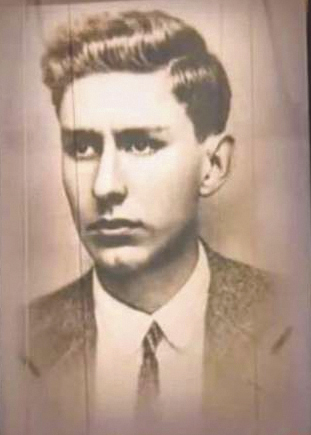
WelCom December 2020
A 19-year-old Spanish martyr who gave his life while protecting the Eucharist was beatified in November at a Mass in the Sagrada Família Basilica in Barcelona.
Joan Roig Diggle, a lay man, was killed during the Spanish Civil War.
‘May his example arouse in everyone, especially the young, the desire to live the Christian vocation to the full,’ Pope Francis said in his Angelus address.
Blessed Joan Roig Diggle was killed ‘in hatred of the faith’ in 1936 during the Spanish Civil War. The young man was known for his devotion to the Eucharist at a time when churches in Barcelona were being closed, burned, or destroyed, so a priest entrusted Joan Roig with a ciborium containing the Blessed Sacrament to distribute Holy Communion to those most in need in their homes as it was not possible to attend Mass.
During one of these visits, Joan Roig told a family he knew that red militiamen were trying to kill him. ‘I fear nothing, I take the Master with me,’ he said. When those seeking his life knocked on his door, the young man consumed the hosts he had been guarding to protect them from potential desecration.
The Libertarian Youth patrol then took him to the Santa Coloma cemetery where he was killed on September 11, 1936 with five shots to the heart and one to the head. Blessed Joan Roig’s last words were: ‘May God forgive you as I forgive you.’
The beatification Mass took place with a limited attendance to prevent the spread of Covid-19.
As a young man Joan joined the Federation of Young Christians of Catalonia (FJCC), which had 8000 members before the Spanish Civil War. In July 1936, Joan told some of his fellow members of the FJCC they should all be preparing to receive martyrdom with grace and courage, as did the first Christians.
In the intense persecution that followed, it is estimated some 300 young people from this organisation were killed in Catalonia, including some 40 priests. The headquarters of the FJCC was burned.
Joan’s mother said that in those days her son ‘was relieving sorrows, encouraging the timid, visiting the wounded, searching hospitals daily among the dead to find out which of his own had been killed’.
‘Every night, at the foot of the bed, with the crucifix clasped in his hands, he implored for some clemency, for others forgiveness, and for all mercy and strength,’ she said.
Sources: Vatican News, CNA